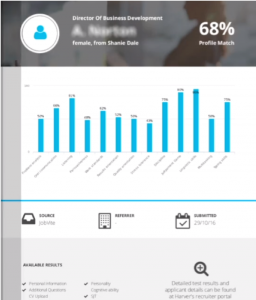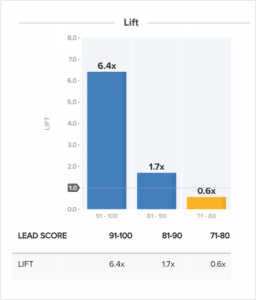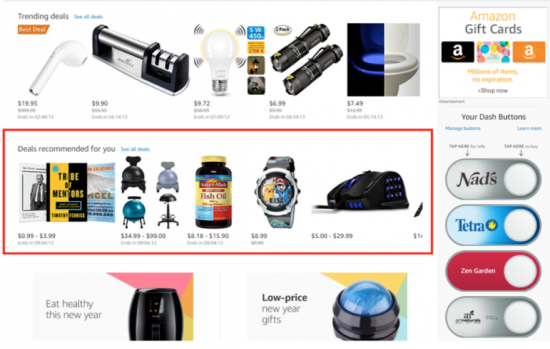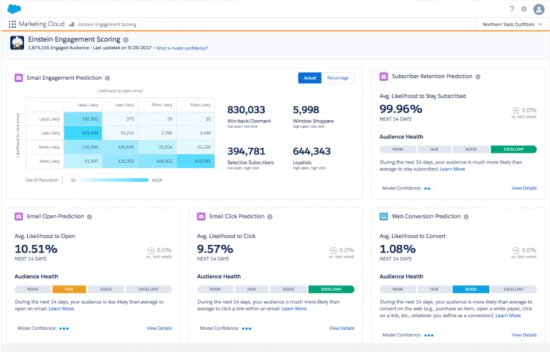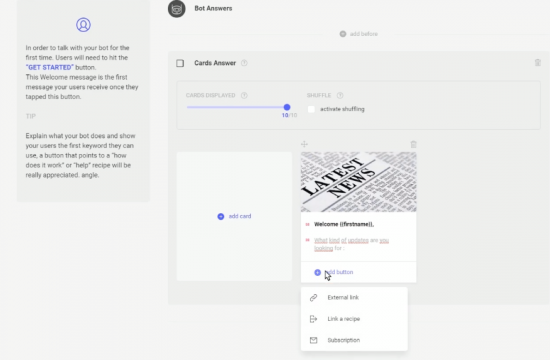
The entire process requires all kinds of insights in relation customer profiles, market demand, buying habits, pain points, pitching strategies, and much, much more.
We are incredibly fortunate to live in a time when sales specialists don’t have to perform all these tedious chores manually. The rise of artificial intelligence (AI) has made it possible to not only automate many of the tasks involved in the sales process, but do them in a more precise way. A study conducted by Gartner predicts that at least 30% of companies will be using AI technology in one or more facets of their sales process by 2020!
So, were your sales numbers not where they needed to be this past year? If not, here are a few ways AI can solve your problems.
1. Make Better Decisions from the Start
Impressive sales numbers start with the salespeople behind them.
As many will agree, sales, in general, requires a certain personality. However, it’s hardly a one-size-fits-all personality. While some might be perfectly wired to sell things like cars or real estate, they might be completely useless in selling software or advertising.
Furthermore, every sales team has its own setup and needs for particular skills and character traits within the department. That being said, as a manager or business owner, the staff you bring onboard has a monumental impact on the numbers.
For years and years, the hiring process was perhaps the riskiest aspect of running a company. In many ways, it still is. Truth be told, it’s nearly impossible to learn everything about a candidate, their habits, and their motivations before adding them to your team. When bringing on sales talent, this can be even harder. After all, the candidates are selling themselves in order to be hired.
Thankfully, AI-based solutions are now doing wonders to eliminate the guesswork in recruiting a sales team. Data-driven “smart tools” like Harver are specifically designed to help hiring managers make smarter and more accurate decisions.
For one, the system automatically sorts through vast amounts of applications to pinpoint skills and traits pertinent to the job description. Then, it runs specialized assessments to help gain a better understanding of characteristics of the candidate (like problem-solving ability, thought process, situational judgement, and personality) that are key to the job.
Such analysis enables both parties can make educated decisions in regards to whether the employee-company fit is right. When it comes to sales, your staff is the most valuable investment you can make – by far. If you plan to jump on the AI implementation bandwagon, the hiring process is a great place to start.
2. Predictive Software for Better Lead Scoring
One of the worst ways for sales departments to shoot themselves in the foot is by failing to understand the interest level behind each lead. Without this knowledge, you either run the risk of coming on too strong with sales tactics and pushing leads away, or, not capitalizing on those ready to buy.
Minus predictive AI, lead scoring refers the process in which businesses give leads a numerical score based on certain factors and behaviors. The goal is to qualify leads and gauge priorities to help streamline the sales pipeline. The operation gets tricky when determining the consistency and accuracy of the data.
With AI-powered predictive lead scoring, sales teams can leverage historical data and behavior attributes to calculate a much more precise score for each lead.
Software solutions like Lattice enable you to integrate your CRM to score inbound leads instantly. The data cloud system tracks over 16,000 signals in relation to firmographics, intent data, technology attributes, purchase history, growth signals, and much more. Then, you can evaluate your automated predictive reports and use the intuitive dashboard to determine “cut-off” scores for pursuing leads.
The predictive software gives you a much more accurate perception of how to route leads to your sales department or place them in nurturing programs.
From a sales perspective, there is perhaps nothing more frustrating than wasting time on poorly qualified leads. Predictive AI software can do wonders to minimize this problem. While it’s not quite a crystal ball that tells the future, it’s pretty darn close.
3. Getting Personalization Right Every Time
Whether we realize it or not, personalization is everywhere in the content we consume. Consumers these days expect personalization. In fact, studies have found that 74% of customers get frustrated when website content isn’t personalized.
Perhaps the best example of this in everyday life is with Amazon. The website looks different to each and every person who visits. Amazon’s AI systems take into account all sorts of factors like browsing history, purchase intent, and everything related to how we use the platform.
With this information, marketing content goes well beyond the website with omni channel targeting. Ever notice how you search for something online, then later see an Amazon ad on Facebook for similar products?
If you want to replicate this, incorporating tools like Salesforce Einstein can be a game-changer in your sales strategy. Powered by machine learning, the system will create personalized models for each and every customer based on all kinds of relevant insight. It takes into account the context of your business, behavioral history, engagement potential, likeliness to click, etc. to self-tune and proactively recommend the best possible action.
AI-powered marketing automation systems don’t just create more personalized UXs, they are quickly becoming the gold standard for brands to gain a competitive edge.
4. Filling in the Customer Service Gaps
One of the biggest misconceptions a business can have is that sales and customer service are mutually exclusive. In reality, they are very closely tied. In fact, nearly half of consumers will pay more for good customer service.
If you want to improve sales, there can be no cracks whatsoever in your customer service process. Even more, your solutions should work to resolve snags and issues before they evolve into full-blown problems.
The benefits of an AI-powered system cannot be overstated.
- They can deliver a degree of responsiveness that is simply not possible for a human.
- The cost of hiring and training customer service staff is expensive.
- Humans make mistakes. Robots do not.
- Humans sleep. Robots do not.
Its Alive! is an incredibly user-friendly tool for setting up AI-driven Facebook Messenger Chatbots. You can teach the system all the questions and answers it needs to know in order to drive conversations. The trick is designing the discourse in a way that nurtures leads down the sales funnel with triggers to prompt further action.
This type of automated customer service is one of the most valuable weapons AI can provide to help your bottom line. If designed correctly, this engine can potentially make sales while you and your team are sleeping! If you haven’t implemented an AI system to fill in the gaps of customer service, you are essentially leaving money on the table.
Over to You
AI is taking over.
Thankfully, the robots aren’t trying to kill us humans and control the world (at least not yet). The systems and programs currently at our fingertips can be used in amazing ways to help refine customer experiences and improve sales.
If you are hoping to make this coming year your best year to date, do consider incorporating AI into your sales regime.

